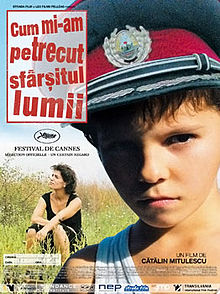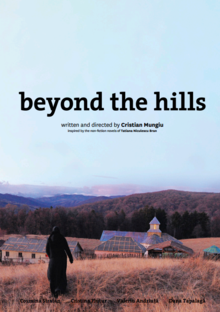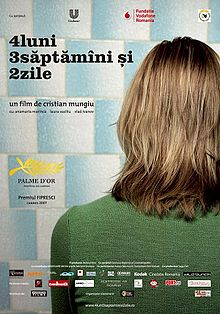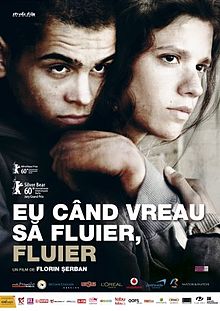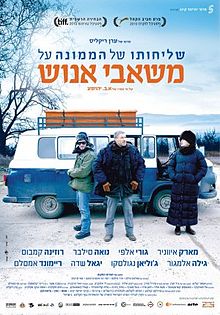 This movie was made by Eran Rikilis, a man who jumped to being one of the top directors in Israel after his The Syrian Bride.
This movie was made by Eran Rikilis, a man who jumped to being one of the top directors in Israel after his The Syrian Bride.
A female migrant worker at a large Israeli bread factory in Jerusalem dies at a market from a suicide bombing, but is left at the morgue unclaimed by any relatives. One journalist gets wind of this and threatens to write a story focusing on the inhumanity of large companies. To avoid bad PR, the female company president of the bread factory decides to bury the body in the deceased’s homeland and she orders the head of the human resources department on a business trip to take care of it. The rude reporter who got the scoop on the story accompanies in order to verify.
The head of the human resources department is in a situation where his family is on the verge of collapsing, living apart from his wife and daughter. Though he was planning on working as a field trip driver for his daughter’s school to be able to interact with his daughter, it falls through. The human resources manager and the reporter arrive together at the dead woman’s homeland, but her husband cannot take the body because they are divorced. Her teenager son, a delinquent, was driven out of his house and now lives on the streets with a group of friends. On the human resources manager’s journey accompanying the son to visit the boy’s grandmother in a village 1000 kilometers away, many unexpected things happen.
Israeli movies can be roughly divided into two categories. The first includes strongly political movies such as Waltz with Bashir, Beaufort, and Ajami, which are well known in Japan; the second depicts the life of ordinary people living in Israel, such as The Band’s Visit and Jellyfish. Jellyfish depicts the gloomy feelings of the younger generation who, separated from the founding generation who experienced the Holocaust, don’t clearly understand the significance of the founding of the nation. In this movie, the focus is on the psychology of the human resources manager who is unsatisfied with the situation of his family, human relations, and job. Like Jellyfish, the lives of foreign workers who are often neglected by the people of Israel are depicted.
Originally in Israel, low-paying manual labor jobs were left for Palestinians. However, with the increase in Palestinian suicide bombings, Palestinian segregation policies were instated that made it difficult for Palestinians to enter the country; therefore, foreign workers were hired in order to fill these manual labor jobs. The ignoring of or perhaps cold gaze toward foreign workers can be observed in any country and is not be limited to Israel, but perhaps the wariness and condescending attitude towards Palestinians from Israel carried over to these foreign workers that succeeded these jobs.
In this movie, Eran Rikilis characteristically pushes a strong theme to the front, like in The Syrian Bride. The theme here is to show the goodwill of Israel in an international context. The human resources manager sets out for the deceased employee’s native land for his job, but gradually his understanding of and sympathy for the country in which she was born deepens. As a consequence, the woman’s family wants her to be buried in Israel as the home country she chose. Also, his daughter insists that he forget about being a driver for the school field trip and instead take good care of this woman’s dead body.
What country was the victim of the suicide bombing born in? Even now, bureaucracy and bribes leftover from a socialist administration remain in the country. The capital is crumbling and lifeless, and street kids without hope hide in every corner in the neighborhood. Everyone believes in the Eastern Orthodox Church. Horse transportation still remains in poor, desolate villages. The movie doesn’t explicitly specify the country, but the audience gradually understands it is Romania. Why is it Romania?
Many Jews lived in Romania. They suffered from the Holocaust of World War II like Jews who lived in other countries, but it wasn’t as known as the Holocaust in Poland and Czech Republic. Because the Holocaust in Romania was not done by the Nazis of Germany, it was ignored by the anti-Nazi persecutions. There were massive killings of Jews in Romania by the hand of Romanians, but this was kept in absolute secrecy and denied by the socialist government over the next 40 years; in the 2000s, the topic of the Holocaust of Jews in Romania began to be officially acknowledged.
The relationship between Romania and Germany during World War II was complicated. Because they were at war with the Soviet Union over land, Romania allied with the German Axis in World War II, but an anti-Germany attitude there gradually increased over time, and Romania changed their alliance to the side of the Allies when signs of Germany’s defeat began to be seen. In 1944, Romania attacked the Czech Republic, which was occupied by Germany at that time. Jewish persecution gradually became visible around 1940, but Jewish persecution depended on the political situation of the government at that time and the severity varied over the course of World War II as well as from area to area. In addition, it is not entirely clear who spearheaded the massive killings of Jews; there was conflicting information about various local Romanian leaders, Nazis, or the Soviet Union being responsible. After the formation of a socialist government after World War II, important intelligence may have been destroyed by the secretive government. The 1941 Odessa massacre is the most well-known, but even still does not appear to have much documentation.
There were many Romanian Jews that immigrated to Israel, but, while there are many documents that have been saved and examined about the German Holocaust, the Holocaust in Romania remains as an unresolved issue. However, this movie by Eran Rikilis does not have an accusatory tone. The dead woman called her home village in Romania the “end of the earth” and left, moved to the city, pursued an engineering degree from the university, and, still not satisfied, tried a life in Israel. I think this movie wants to convey that Israel has a big heart to accept this woman who chose Israel as her home country.
His thoughts may be summarized as, “You who kill Israelis by suicide bombing, you may think you are killing an Israeli, but you are also killing non-Jewish people living in Israel. Can you stop such an act? The people of Israel are ready to stop fighting.” Internationally, Israel is sometimes criticized for harsh tactics against terrorism. However, Jews from the end of World War II up to today continue to ask, “Why weren’t we able to oppose the Nazi movement of World War II?” or, “Why did people obey the orders of Nazi internment camps without noticing such a movement?” I think what they learned from history may be to be suspicious and vigilant.

